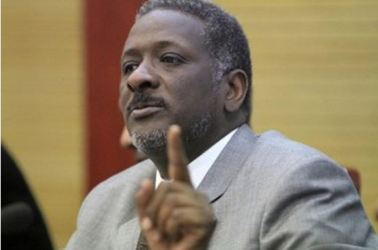Sudan seeks Chinese funding for Merowe canal
November 25, 2013 (KHARTOUM) – Sudan’s finance and national economy minister, Ali Mahmood Abdel-Rasool, told the national assembly on Monday that his government is in talks with China to obtain a $500 million loan to construct the Merowe dam canal.

Sudanese officials said that oil was used in the past as collateral for Chinese loans and following the country’s partition there were reports that Khartoum offered gold mine concessions instead to maintain the flow of loans.
US sanctions and the accumulation of debt arrears prevents Sudan from obtaining loans through international financial institutions.
The additional appropriations proposed by the government allocates 1.3 billion SDG for workers compensations, 225.1 million SDG for subsidies to poor families, 300.1 million SDG for agricultural subsidies and 318.7 million SDG for emergencies.
The parliament also approved in the third reading an amendment to income tax law which imposes a tax on overall revenue earned by corporations rather than its net profit as is the case currently.
Abdel-Rasool suggested that the change was made because some corporations sought to reduce their tax liabilities by converting a percentage of their profits into assets and increasing compensation to their employees.
The International Monetary Fund (IMF) this has called on Sudan to urgently focus on addressing fiscal imbalances and tax reforms.
The IMF noted that Sudan’s revenue-to-GDP ratio of 6.2% is extremely low compared to similar economies, with an average of 17% “reflecting in part exemptions and extensive tax incentives”.
“Improving tax revenue will entail raising some taxes, streamlining tax exemptions, rationalising business tax incentives, and taxing gold activities. Tax efforts should be accompanied by revenue administration measures aimed at developing a tax procedure code, strengthening the audit capacity, reinforcing the penalty procedures for non-compliant taxpayers, and enhancing the business registration process and core operations’ workflow”, the IMF said.
The Sudanese government has been working on cutting its budget deficit, which expanded after losing the oil-rich South. Oil revenues constituted the majority of Sudan’s exports, national income and source of hard currency.
Fearing an economic collapse, as Sudanese officials termed it, Khartoum cut fuel subsidies late last September which almost doubled gasoline and diesel prices, thus triggering some of the worst protests Sudan has seen in years.
(ST)
